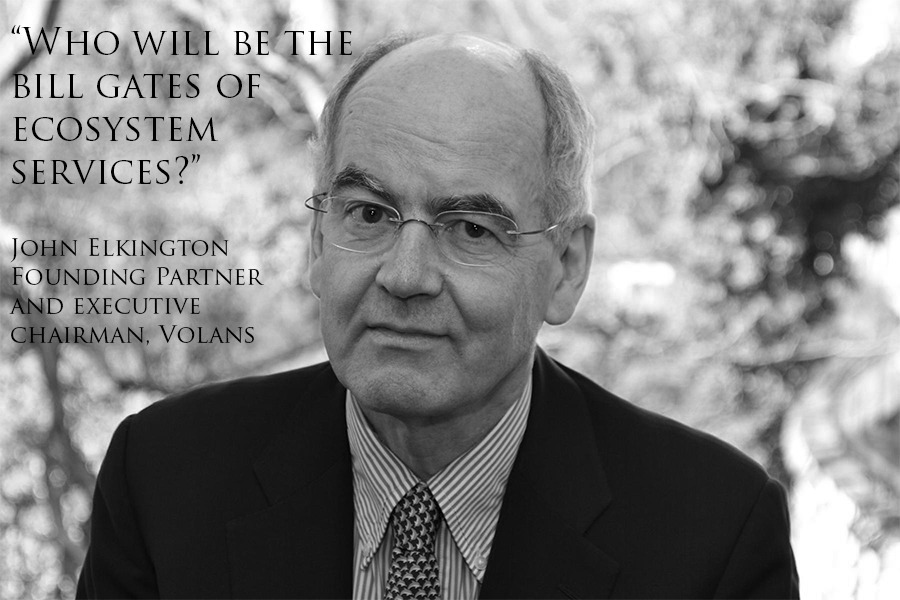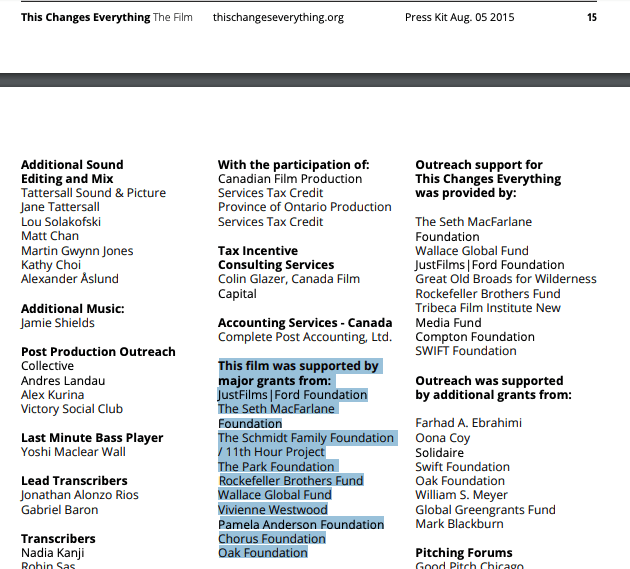Mar 22
20193
Neo-Liberalism and the Defanging of Feminism, Social Engineering
#Strike4Climate Climate Strikes Green New Deal Greta Thunberg Militarism neoliberalism “sustainable development”
Greenwashing the Climate Catastrophe
February 8, 2019
By Kenn Orphan
It is hard not to notice a stirring of consciousness regarding humanity’s dire ecological predicament beginning to seep into the mainstream these days. How can it not? Year after year records are shattered. Month after month scientists continue to be shocked and demoralized by more and more evidence of rising seas, a climate careening into a chaotic and terrifying unknown, and countless species succumbing in a biosphere perpetually under siege. Even the corporate media which has been designed as a mouthpiece of capitalist interests cannot completely veil our collective crisis. Unsurprisingly, the ruling class has begun to react, not in a way that meaningfully addresses the death cult of the current socioeconomic order, but to ensure its survival albeit with a greener face. Their cynical approach to what is the biggest existential crisis of our age is using youthful optimism and justified outrage and terror to cloud their machinations.“With “capitalism in danger of falling apart” (a rare, cryptically honest quote from Al Gore), and years of stagnant global economic growth now in a free fall, the Greta campaign must be understood for what it is. An elaborate distraction that has nothing to do with protecting the natural world, and everything to do with the manufacturing of consent. The required consent of the citizenry that will unlock the treasuries and public monies under the guise of climate protection.” –– Cory Morningstar and Forrest Palmer, from The Manufacturing of Greta Thunberg – For Consent: The House is on Fire & the 90 Trillion Dollar Rescue, 2019
“One might think that if someone were conscious enough to recognise that global ecology was compromised and that pollutants were destroying fresh water, and the land, and that global warming was quite possibly going to make huge swatches of land non arable — you might think that person would look for solutions in a political frame. After all it was global capital that had brought mankind to this historic precipice. But instead, many if not nearly all the people I speak with, frame things in terms of personal responsibility. Stop driving big diesel SUVs, stop flying to Cabo for vacation, stop eating meat, etc-. But these same people tend to not criticize capitalism. Or, rather, they ask for a small non crony green capitalism. I guess this would mean green exploitation and green wars? For war is the engine of global capitalism today. Cutting across this are the various threads of the overpopulation theme. A convenient ideological adjustment that shifts blame to the poorest inhabitants of the planet.” –– John Steppling, Trust Nothing, 2019
“The smart way to keep people passive and obedient is to strictly limit the spectrum of acceptable opinion, but allow very lively debate within that spectrum.” –– Noam Chomsky, The Common Good, 1998
“Modern business must have its finger continuously on the public pulse. It must understand the changes in the public mind and be prepared to interpret itself fairly and eloquently to changing opinion.” –– Edward L. Bernays, Propaganda, 1928
One such prominent youth these days is Greta Thunberg, the 16-year-old Swedish girl who delivered a rousing speech at the UN Climate Change Conference and before the world’s wealthiest at the World Economic Forum in Davos, Switzerland. Indeed, her speech was inspiring and I do not doubt her passion or honest devotion to climate activism for a minute, but to ignore the powerful machine looking to co-opt her message would be a grave mistake. For instance, Thunberg has been given interviews in the corporate press, has been endorsed by a tech start-up company (We Don’t Have Time), and has been lauded by industry for promoting “sustainable development.”
Now certainly Thunberg is not the one manipulating any of these actors, and she should not face any kind of criticism for her part in addressing the greatest existential issue of our times. But it should be clear that most people who get interviews in the corporate media are generally not deemed to be a serious challenger to the status quo political/economic order. Corporate approved dissent is a form of censorship that gives the illusion of a lively debate, but essentially establishes a firm line in the sand when if comes to radically questioning or opposing the capitalist framework itself. And if finance companies are behind something we can be pretty sure that they are primarily in it for the money. In addition to this, the term sustainable development is a meaningless on a planet that is literally on the edge of a cliff, but under the dominant economic dictatorship of money the co-opted mainstream environmental movement has pumped out these tropes making them a form of collective social conditioning.
And this ties into the notion of personal responsibility. Solutions to our environmental crisis have been reduced to “life style changes” which have also become the en vogue activism of the day. It is a line of thinking that is accepted and even endorsed by corporations, banks and neoliberal governments because it poses no real challenge to their power or their ongoing destructive practices. To the mainstream, tweaking one’s lifestyle is all that is needed. Buy an electric vehicle or use a bicycle. Don’t take a plane on your vacation. Buy reusable bags. Choose organic only. Go vegan. Buy reusable straws. While there is nothing wrong with doing these things in general, they must be understood as individual choices that are based on privilege and that have little impact in addressing urgent crisis our biosphere is facing right now.
What they do manage to do is deliver an added punishment on the poor and working class, people who are struggling to make ends meet. It places an unfair level of guilt on ordinary people whose impact on the environment is relatively negligible compared to the enormous destruction caused by the fossil fuel industry, mining companies, plastic and packaging production, shipping and the military industrial complex. Seldom (if ever) questioned are the basic foundations of the current economic order which is driving the decimation of the biosphere for the benefit of the wealthy Davos jet set.
It has in fact become only about “sustainability” despite the contradiction of sustaining a system that is at its core omnicidal. Corporations have been actively branding themselves with empty greenwashing euphemisms like “green” or “earth friendly” in the decades following the first Earth Day. It is as if our species were somehow alien visitors to this planet and being friendly to it was merely a diplomatic concern. Certainly a handful of corporations did in fact change some of their practices under public pressure and for the sake of image. Some of those changes had beneficial effects for certain species and areas. But the primary engine of capitalism that has led us to the brink of devastation is never questioned. It is sacrosanct.
With this in mind political solutions, like the Green New Deal, are being trotted out by democratic socialist and neoliberal politicians that merely cloak the problem, never identifying the root of it all: Capitalism. In fact, many of these policies are weak on protecting nature and are simply designed to keep capitalism afloat. At its core this is a system that is incapable of even beginning to address climate change or biospheric degeneration. Its principles are based upon the exploitation of the environment for the material gain of the ruling class, kept alive through institutions of repression and corporate state violence. Under this rubric environmental causes may be soothed for some; but the poor and working class are continually battered and raped by industry and the corrupt governments that house and protect them. Indigenous peoples, who face the worst exploitation, continually see their lands desecrated and denuded by state policing factions at the behest of powerful corporations. And militarism, which is of course wedded to capitalism, ensures that all of this exploitation can continue and expand virtually unopposed by bourgeois society.
It may be a hard pill for many to swallow, but there are simply no viable answers to be found in Washington, or the hills of Hollywood, or the board rooms of Wall Street, or even at the United Nations which generally capitulates to the demands of the ruling class. They have molded each of these institutions, media industries and government bodies to fit their censorious narrative in order to suppress dissent against the current economic order, under which they so handsomely profit. And one would be wise to approach whatever they offer with great caution. After all, they have been labouring for years to dismember the commons, grow their inordinate wealth through plunder, and maintain their dominance through corruption, militarism and distraction. The sacredness of the public sphere has been defiled by the inviolable liturgy of free market dogma. And they have manufactured a culture of cruelty, devoid of character and predicated on colonization and the commodification and exploitation of everything and everyone that exists. In this way neoliberalism, the last and most ruthless stage of capitalism, has become the most elaborate and successful form of brainwashing and social control the world has ever known, convincing hundreds of millions of people of the absolute necessity of its economic tyranny and omnicidal madness.
But despite the machinations of the ruling class to obfuscate, infiltrate and co-opt movements, there remains a genuine longing for connection to the ever besieged living planet and solidarity with one another that transcends the indifferent and sadistic brutality of the capitalist order. This is especially true as capitalism begins to implode and the biosphere continues to degrade. Therefore the most coherent response to what we are witnessing will always come from ordinary people in community, especially the poor and especially indigenous peoples who are on the front lines of a war being waged by governments serving the interests of the wealthy ruling class and global capitalism. But we can be assured that anything that emanates from the halls of power will be merely another ploy to maintain their control and fill the coffers of the uber-rich at the expense of the rest of us and the living earth itself. And they have no problem using the innocent passion of a 16 year old girl to hide all of their crimes.










































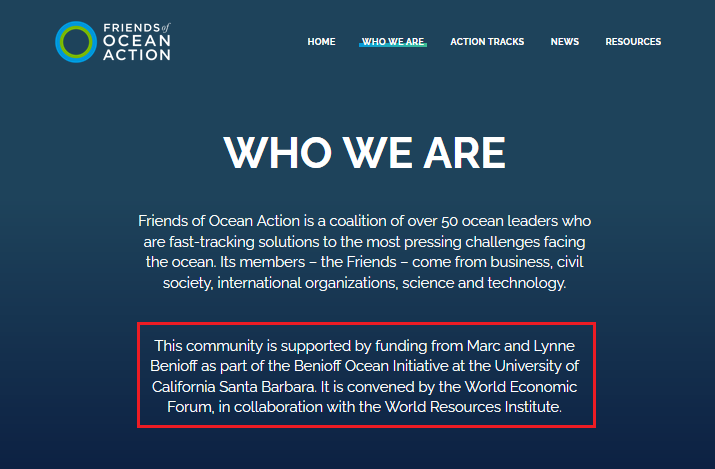
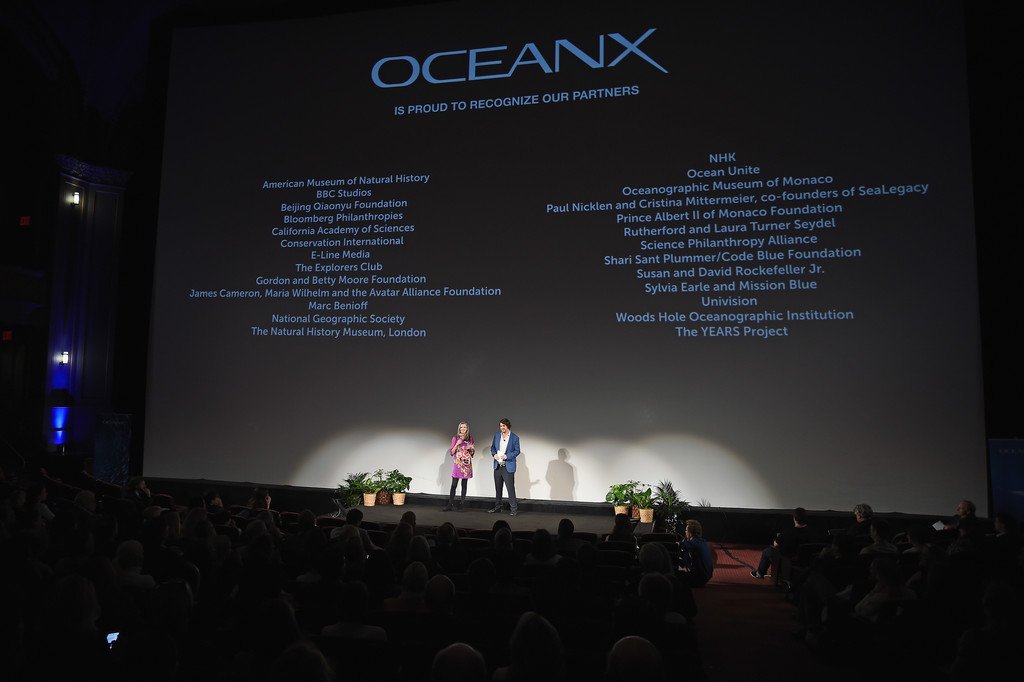












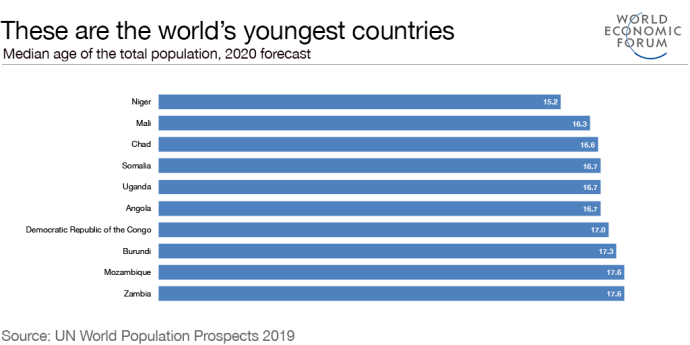








 He enthuses: “While it may not feel momentous to those of us experiencing a series of small but significant adjustments to life on a daily basis, it is not a minor change—the Fourth Industrial Revolution is a new chapter in human development, on a par with the first, second and third Industrial Revolutions, and once again driven by the increasing availability and interaction of a set of extraordinary technologies”. (5)
He enthuses: “While it may not feel momentous to those of us experiencing a series of small but significant adjustments to life on a daily basis, it is not a minor change—the Fourth Industrial Revolution is a new chapter in human development, on a par with the first, second and third Industrial Revolutions, and once again driven by the increasing availability and interaction of a set of extraordinary technologies”. (5)

 But this does not stop him presenting them in a positive light, as when he declares that “public crime is likely to decrease due to the convergence of sensors, cameras, AI and facial recognition software”. (27)
But this does not stop him presenting them in a positive light, as when he declares that “public crime is likely to decrease due to the convergence of sensors, cameras, AI and facial recognition software”. (27)


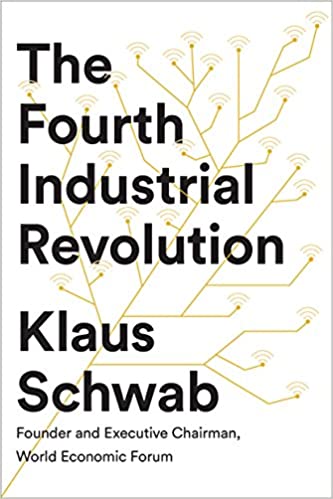 “This gives rise to an inequality that goes beyond the societal one described earlier. This ontological inequality will separate those who adapt from those who resist—the material winners and losers in all senses of the words. The winners may even benefit from some form of radical human improvement generated by certain segments of the fourth industrial revolution (such as genetic engineering) from which the losers will be deprived. This risks creating class conflicts and other clashes unlike anything we have seen before”. (51)
“This gives rise to an inequality that goes beyond the societal one described earlier. This ontological inequality will separate those who adapt from those who resist—the material winners and losers in all senses of the words. The winners may even benefit from some form of radical human improvement generated by certain segments of the fourth industrial revolution (such as genetic engineering) from which the losers will be deprived. This risks creating class conflicts and other clashes unlike anything we have seen before”. (51)
 One of these “narratives” whitewashes the reasons for which 4IR technology needs to be installed everywhere in the world as soon as possible.
One of these “narratives” whitewashes the reasons for which 4IR technology needs to be installed everywhere in the world as soon as possible.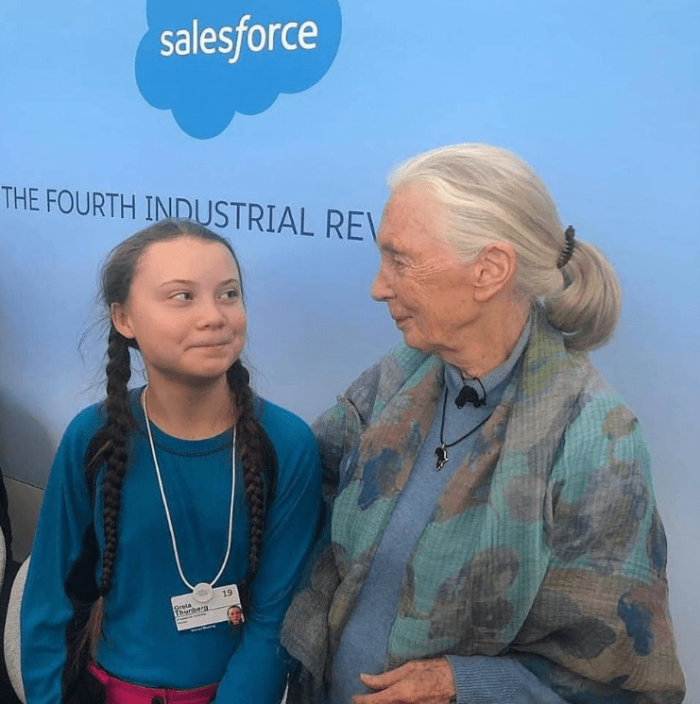



















![Source: Indigenous Environmental Network [IEN]](https://i0.wp.com/www.wrongkindofgreen.org/wp-content/uploads/2020/09/IEN-Statement-on-GND-Net-Zero.png?resize=1196%2C358&ssl=1)









